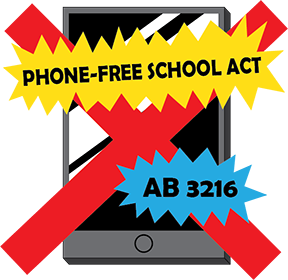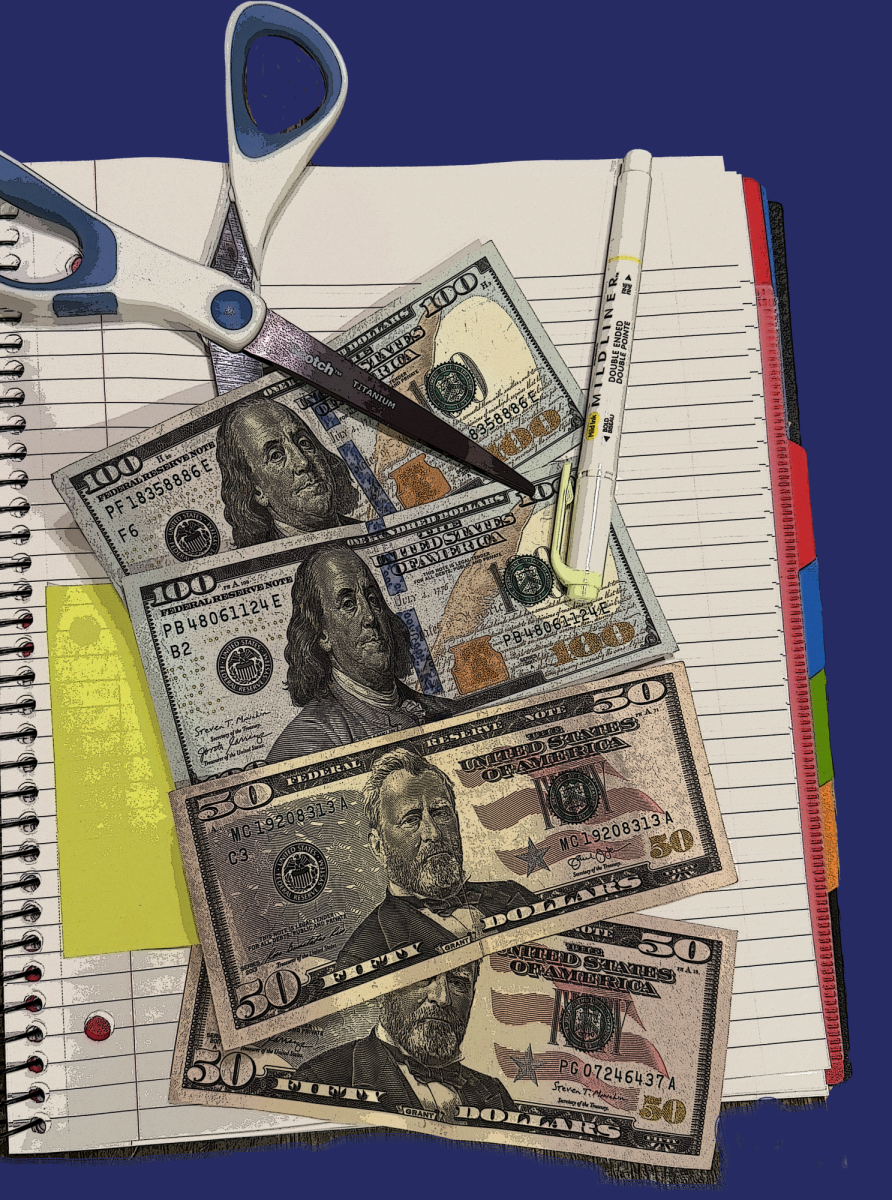The Phone Free School Act leaves some students calling for help to face school crackdown, while others are ready and willing to hang up the phone like school administration and parents who are fearing the worst from teen fixations with their devices.
The Phone Free Act (AB-3216) approved by Governor Newson on September 23, 2024 requires a school district to develop and adopt a policy to limit or prohibit phones by July 1, 2026 and update the policy every five years.
PRHS phone rules appear to align with language from the CSBA (California School Boards Association). At PRHS, the current phone policy prohibits the use of phones during class, but open use when students are not in class.
But decisions may lie ahead. Assistant Superintendent Erin Haley presented the current policy and the implications of the law to the board members. She stated the district will keep the current policy of a ban on phones in the classroom where the district is planning to provide a storage system where students will keep their phones while in class. The district plans to make the policy very clear to be enforced consistently among all

classrooms with a set consequences for violation of the rules.
Prior to 2004, Paso Robles had a zero tolerance phone policy on campus, including during lunch and passing times, but it was dropped due the growing popularity of cell phones and the difficulty of enforcing it.
In light of research on the effect of unrestricted cell phone use at schools and other school systems’ success, this bill passed with a unanimous agreement, and other school districts have already adopted phone free policies such as Mission Prep High School using Yondr bags were students must lock their phone in a magnet case which can only be opened with a school’s device.
According to AB-3216, “There is growing evidence that unrestricted use of smartphones by pupils at elementary and secondary schools during the schoolday interferes with the educational mission of the schools, lowers pupil performance, particularly among low-achieving pupils, promotes cyberbullying, and contributes to an increase in teenage anxiety, depression, and suicide.”
Along with this AB-3216 states: “Using pupil data from England, the results from a 2015 research paper published in the Labour Economics journal suggest that after schools banned mobile phones, test scores of pupils 16 years of age increased by 6.4 percent of a standard deviation.”
While the facts about the negative impacts of cell phone use at school are undeniable, some PRHS students believe there are still some hurdles to overcome if our district chooses to adopt a stricter policy. Sophomore, Trever Mansfield, brings up a point for his situation “It’s not really fair to kids who don’t have access to call their parents
who live 20 miles away” He continues “It’s the only way I can contact my Mom
and she makes last minute decisions all the time”
Though with these challenges Mansfield does still say: “It probably would improve my class work because there are less distractions”
Unlike Mansfield, a survey conducted by PRJUSD on 1,659 7th-12th grade students found that 80.2% of students believe that having their phones on doesn’t negatively affect their learning, while 82.1% of teachers and 69.5% of parents think otherwise.
At the moment the current district phone policy meets the standards of the new bill, and does not legally have to be changed for another five years, but, as Haley presented, the district is likely to implement phone
pouches to keep phones of student’s bodies or their backpacks during class.








